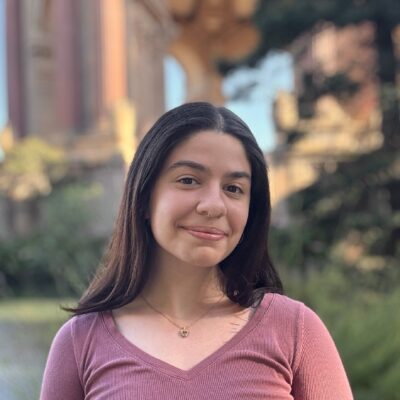Ayah Aldajani L&S Social Sciences
Eavesdropping for Good: How Children Attend to Overheard Speech
Children are notorious for being the sneakiest eavesdroppers, much to caregivers’ dismay. But could this mischief, actually be beneficial for their language development? According to research, overheard speech plays a significant role in children’s learning of words and facts, yet there is a gap in the literature when it comes to understanding which attentional cues indicate learning from overhearing. This raises the question: When children are surrounded by speech that is not directed to them, how do they decide what to attend to, and how can this support their learning from overheard speech? I aim to identify these cues through an in-lab experiment measuring gaze, eye contact, pointing, and more, by using eye-tracking technology and behavioral observation. This will paint a more accurate and nuanced understanding of how children process overheard adult conversations. Doing so can enhance learning and lead to improved language outcomes. These findings may inform strategies for parents and teachers to communicate effectively in large groups, even when attention is not shared between each child and the speaker.
Message To Sponsor
I sincerely thank you for making this work possible! Your support throughout this process has been immensely empowering. Taking part in SURF this summer has encouraged me to pursue a PhD and has allowed me to hone my interests. As a financially independent student, I would not have been able to dedicate this time to research if it weren't for your support. I am forever grateful for your generosity and altruism which has allowed me to continue working on a project that is so meaningful to me. Thank you for providing the resources and backing that will allow me to make a meaningful and impactful contribution to the field of developmental psychology.